- Home
- Martin Cruz Smith
The Girl From Venice Page 20
The Girl From Venice Read online
Page 20
“Do you think you can move your arms and legs?” Cenzo asked her.
Giulia nodded. “Are you hurt?” she asked.
“Barely a scratch.”
“Life is unfair that way,” said Nido. “I have found a little grappa improves almost any situation.”
“Water even would be nice,” Giulia said.
Nido poured water for Giulia and grappa for Cenzo and himself. He felt benign and Cenzo felt enormous relief. Cenzo held the glass of water while Giulia lifted her head to drink.
“But why a German plane?” Nido asked.
“It was spur-of-the-moment,” said Cenzo.
“I’m sure it was. What are you going to do?” he asked.
“Disappear,” Cenzo said.
“And the plane? Is that going to disappear? Everyone will know that you left Salò and ended up here in a German plane,” Nido said. “That makes you a marked man. And me, too, since you landed in my garden.”
“I’m sorry about that,” Cenzo said.
“These things happen.” Nido became solemn. “You swore you would stay out of trouble.”
“I tried,” Cenzo said. “God knows, I tried.”
“I have to get dressed,” Nido said. “It’s going to be a long day. You know, I’ve spent a lifetime in this bar telling lies about prizefights and foreign lands. This is the first time I’ve ever had a story like this to tell, and it’s too much. Nobody will believe me.”
“And the gold. They’ll never believe that,” said Giulia.
Nido lifted his head ponderously, as a great turtle might. “What gold?”
“Don’t worry,” Cenzo said. “We dumped it. It was too heavy.”
“Too heavy! You stole a plane full of gold and dumped it?”
“Yes.”
“Do people think you still have it?”
“Probably.”
“And you came here? I almost feel like a rich man.”
With each detail, the story got worse.
“And what about her?” Nido gestured to Giulia.
“She’s with me.”
“With you? This sounds like more than a complication,” Nido said. “Aren’t you supposed to be getting married to Celestina at the end of the war? That’s what your mother says. She says it would solve all your problems, respectability being the biggest, apparently.”
“No, the biggest would be being married to Celestina.”
“But you promised ‘at the end of the war.’”
“I thought Mussolini would hang on a little longer.” Cenzo’s body was starting to stiffen up from a multitude of bruises. He stood up and walked outside.
Dawn was rapidly changing color from gunmetal gray to flamingo pink. Fishing boats bobbed on the water. A chubby boy, the Son of the She-Wolf, stood in Nido’s garden. He was absolutely still, transfixed by the wreck of the Stork.
34
With daylight, the children of Pelestrina gathered around the plane like witnesses to a miraculous apparition, running their fingertips over bullet holes, peering through the shattered windshield, racing under the plane’s wings. The Stork was a phenomenally reliable aircraft, served by oversized wings that could spread like a vulture’s or fold like a cicada’s.
Cenzo disengaged the propeller from the grapevines it had nested in. “It’s a miracle we didn’t break our necks. I’m sorry about your garden.”
“You landed where you landed,” Nido said. “The question is, how you are going to get it out of here?”
Cenzo knew that he needed to reach the road and, to do that, he had to squeeze between the garden and the shrine. Once on the road, he would have to avoid potholes to gather speed.
He had never paid much attention to the shrine at the end of Nido’s garden. It wasn’t much larger than a bus shelter, a whitewashed hut dedicated to Our Lady of Fatima. From there he had thirty meters for takeoff before he hit the water.
But they weren’t going anywhere. What was the old saying? Cenzo thought. “So near and yet so far”? For all their running, they were back where they had started, in the devil’s vest pocket.
“Who is the boy?” Giulia asked.
“The Son of the She-Wolf, although he looks more like a small bear,” Cenzo said.
“He’s our squadron leader’s boy,” Nido said. “His name is Umberto.”
“You think he’s a spy?” Giulia asked.
“I don’t know,” Nido said. “I would have said yes, but I find that he’s developing new tastes. Yesterday I caught him reading comic books behind the bar.”
“Everything is changed,” Cenzo said.
“Everyone—the Germans, the partisans, and the Fascists—thinks you have the gold,” Nido said. “How many bars of gold do you think you threw out of your plane?”
“Maybe twenty,” Giulia said. “Maybe more.”
“Makes me shiver,” Nido said.
“The problem is that in their minds we still have a fortune in gold,” Cenzo said.
The ancient pensioners, Enrico and Salvatore, ventured up the street like a pair of well-dressed crabs. “Do you have any nets for us to mend?” Enrico’s eyes darted to the plane.
“This has every element of insanity a man could hope for,” Nido said.
“Ha-ha. It only gets better,” Salvatore said.
Out of breath, Sofia Vianello appeared close behind. “Cenzo, how long were you going to wait to tell us? You don’t come home and then you don’t tell us when you do. Do you know how insulting that is?”
Celestina followed with eyes narrowed to slits.
“Hello, Mama,” Cenzo said, and set the propeller on the ground.
“Why do you call me your mother? Is this how a son treats a mother? You think the neighbors don’t notice?” Indeed, heads leaned out of doorways the length of the street. “And who is this?” she added, indicating Giulia.
“This is my friend.”
“A girl?”
“That’s right.”
“How old is this girl?”
Giulia said, “I’m eighteen.”
Sofia turned to Giulia. “Eighteen? You’re married, I presume.”
“No.”
“By eighteen, most girls are married.” Sofia acknowledged the airplane poised at the edge of Nido’s garden. “Where’s your brother? You didn’t fly here yourself.”
“He’s still in Salò, as far as I know.”
“Not one good word to say for your older brother, who probably saved your neck. Meanwhile poor Celestina has to wait and wait.” Sofia seemed to become aware of her neighbors hanging on every word. “Vianellos do not conduct family matters in the street. Come home and have some breakfast.”
“Maybe Giulia can come too? She especially likes your polenta.”
At the kitchen table, Sofia offered stale biscotti and espresso. Giulia declined both. She took in the kitchen of dark wood and copper pots hung according to size. In general, the furniture had the sort of earnest, oppressive quality that drove men to their boats.
Sofia asked Giulia, “Your family are not fishermen, are they?”
“But she can fish,” Cenzo said.
“Cenzo can fish on his own,” Sofia said. “He’s a good provider when he remembers his family comes first, or he’s not distracted by every giddy thing that comes his way.”
“Like the war?” Cenzo said.
“We are going to marry as soon as the war is over,” Celestina said. “That’s the agreement.”
“The family has an understanding,” Sofia explained to Giulia. “I lost my youngest boy, Hugo, Celestina’s husband. I received a medal as a Heroic Mother.”
“Pinned on her by Mussolini himself,” Celestina said.
“And Cenzo agreed to take Hugo’s place,” Sofia said. “Really, all they need is a priest and a registrar.”
“I don’t think the war is over quite yet,” Cenzo said. “There are still some holdouts. There’s plenty of fighting left.”
“We’ll see.” Sofia offered Giulia a cookie. “Why don’t you sleep here tonight? We’ll say you’re a cousin. Cenzo can stay at his shack. I think that’s best.”
“This is Pellestrina,” Cenzo said. “Everybody is related to everyone else. We will fool no one.”
“Still, it’s a matter of your reputation. If not your reputation, then your friend’s. What will people think of a girl who spends her nights with a man who is engaged to be married to another woman?”
“Maybe that she’s a deckhand?” Cenzo said.
“You’re not serious. See, Innocenzo, I know you better than anyone else. You made a deathbed promise to your father, whom you loved. You would never break such a promise.”
“If I’m just a deckhand, I don’t think it matters where I go,” Giulia said.
“See, she agrees.” Sofia slapped her hands together now that she finally had the conversation on the right track. “I’ll make polenta for breakfast and she can go to church with us.”
“Even if I’m Jewish?”
“We’ll make an exception.” Sofia wasn’t fazed. “Like the pope.”
35
For two years Venice had been a cowed and crowded city, intimidated by curfews and the policeman’s rap on the door. On Liberation Day, a new Venice rose up despite the presence of Fascist snipers on rooftops. Partisans fought back with rifles that were handed from canals to palace windows. They tied red kerchiefs around their arms and waved the flag of the winged lion above St. Mark’s Cathedral. Some whores proved to be patriots. Women who had taken Germans as lovers had their hair brutally cropped by the partisans. Mussolini himself had been spotted by a partisan who shouted, “Hey, here’s Big Head!” He was executed against a stone wall with Claretta, his lover, who had been loyal to the end.
The day of liberation was followed by days of uncertainty. Whoever had been on top was likely to find himself on the bottom. Not only soldiers and Fascists had to adjust, but also the technocrats and bureaucrats who had kept the cogs of the state turning, switching portraits of Il Duce for the pope. Some prisoners had to stay behind bars no matter what. Others were prisoners in the morning, partisans at noon, and government ministers by evening. And vice versa. It was hard to say who was more vulnerable, the famous or the anonymous, although it was generally agreed that big heads rolled best.
Cenzo waited for some form of authority to appear in Pellestrina, much the same way he expected Giulia to disappear at any moment. What was an educated, beautiful person like her doing with him? She could tie any variety of knots and tell jokes in three different languages. She even made him feel irrationally optimistic, and that surely was against the natural order of things.
• • •
Peace had been kind to Colonel Steiner. He could have been placed in a prisoner-of-war camp; instead he was hospitalized in a Venetian palazzo decorated with murals of Romans resting on cushions and eating grapes. The doctors came by twice a day and nurses lubricated his burns with salve.
He peered through bandages and spoke in a raspy voice. “Americans respect rank. They give us everything but slippers and bathrobes. Prisoners of war are expected to work, but they’re paid for it and the higher ranks don’t have to work at all.”
“So you’re comfortable?” Cenzo asked.
“Except that I feel like a mummy. The doctors encourage me to move around, so there is an element of discomfort, but it’s for my own good. I never could have afforded such luxury before the war.” The colonel peered over a windowsill at the guard post below. “Is that Giulia Silber, by any chance?” A week had passed since the crash of the Stork, and except for a bruise on her forehead it was almost unnatural how rapidly she had recovered.
Cenzo nodded. She could have been a student engrossed in a book, although he knew her concentration was entirely on his meeting with Steiner. She glanced up and flicked her hair over her forehead. “The guards allow you only one visitor at a time. Otherwise she would have come up.”
“I remember her from the tunnel. She had nerve.”
“She still does. When do you expect to be released?” Cenzo asked.
“It’s up to the doctors and then the judges.”
“What will you do then?”
“I was thinking of writing my memoirs before amnesia sets in. There will be a nationwide amnesia, wait and see. What is the young lady going to do now? Leave Italy?”
“I have no idea.” It was something he had tried not to think about. “She’s an intellectual. She can argue with anyone about anything.”
“I know her parents are dead, but maybe she has other relatives that can help her out?”
“There aren’t many relatives left,” Cenzo said.
“I think some Jews in Italy got away. At least I hope so. I know that more than two hundred were sent to the camps from Venice and eight thousand from Italy. This isn’t Poland or Germany. Would you mind lighting a cigarette for me?” Steiner asked. Cenzo lit one and Steiner took a luxurious draw that ended as a wracking cough.
“There’s something I wanted to ask,” Cenzo said. “Was it an accident?”
Steiner gave him a questioning look. “What?”
“The explosion at the tunnel. At the time, you thought it might be a matter of sabotage. Do you still think so?”
“Maybe. There will be an inquiry. I know I never did anything that a soldier couldn’t do with honor intact. You yourself understand the efforts I made for a German surrender. Do you want to know what I dream about? Skiing. I dream about skiing on a slope of absolutely pure snow. My wife and son are right behind me and I hear the sound of their skis and we simply never stop. But it’s a dream.”
Cenzo could have left it at that and walked away. If there was going to be an inquiry, wouldn’t there be an investigation?
“Do you remember the SS raid on the hospital of San Clemente?” Cenzo asked.
“You mean, where I saw a ghost run down to the water?”
“It wasn’t a ghost,” said Cenzo. “It was Giulia. You and Lieutenant Hoff were in a gunboat looking for her.”
“Hoff was. He had a list.”
“But there were two conspiracies, the Silber Ring to end the war and the Hoff Ring to keep it going and kill as many Jews as possible. The Silber Ring never had a chance, did it? Not really.”
“Overall, I’d have to say that is correct.”
“Which means that Giulia’s father never had a chance. He was just played for a sucker.”
“You could say so. I met with Silber and his group for about a year. Usually I reported to General Kassel. Silber had the business connections and General Kassel offered the prestige of the professional soldier. But the plans were leaked; they generally are if they sit on the shelf too long. It was more a matter of bad timing. Six months before was too early. The Germans weren’t ready to quit. Six months later they were ready, but we had been compromised. The Americans came up with basically the same unconditional surrender, but with different players.”
“Nobody warned Silber’s ring, did they?” Cenzo said. “Because they still played a part.”
“What are you suggesting?”
“I’m saying that since Silber’s cards were already on the table, the Allies pretended to use them,” Cenzo said. “They led him to believe that his plan was still operational. Is that what made him so effective as a decoy?”
“He was a diversion,” Steiner said. “Switzerland was full of spies and decoys all watching each other. The more spies that wasted their time watching Silber and his friends, the fewer watched the Allied forces. There are always decoys. Before the invasion of Normandy, the Allies filled the channel with plywood boats and cutout soldiers.”
“When did you hear there was
a raid at the hospital?”
“Hoff told me that night. That’s why he was celebrating. He was proud of himself for scooping up the last of the Jews.”
“He didn’t know that you were part of the Silber Ring?”
“No, otherwise I would have been picked up.”
“No offense, but what could you provide?”
Steiner said what was self-evident. “What do you think? The Garda Tunnel.”
“To provide an escape route for the Germans or block the Americans?” Cenzo asked.
“It’s a matter of timing, isn’t it?”
So the puzzle was still incomplete. Cenzo looked down at a line of German soldiers in uniform being force-marched by partisans along the canal.
Steiner took in the same spectacle. “I heard that some SS were weighted with cobblestones and thrown into the water.”
“There are always rumors like that at the end of a war,” Cenzo said.
“There are also fantastic stories about Mussolini’s gold.”
“And then there’s the man who betrayed the Silber Group, DaCosta,” Cenzo said. “He’s like a cat that wanders in and out of rooms.”
“Did you find him?” Steiner said.
“We saw him in Salò. He goes by the name of Otto Klein and claims to be in the film business. I’m sure he still wants to see Giulia dead.”
“Then what I would do, if I were your friend Giulia, is get out of Italy as fast as possible. And if I were you, I would accept that the war is over. We should all carry on as best we can and get on with normal life. I heard you crashed a plane in Pellestrina. Surely, that’s not normal.”
Normal life? What was that? Cenzo wondered.
• • •
Sailing back to Pellestrina, Cenzo reported to Giulia everything Steiner had told him, with one exception. He didn’t think it was necessary to pass on a description of Vittorio Silber as a decoy, a mere dupe for German intelligence. Her father had given his life bravely. From here on, Cenzo wanted her to concentrate on saving her self.
“Do you believe Steiner?” Giulia asked.
“Yes and no. He lied to me. He tried to convince me that Russo was dead. I think he’s honest to a point.”

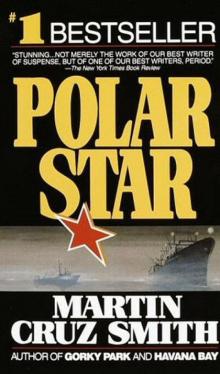 Polar Star
Polar Star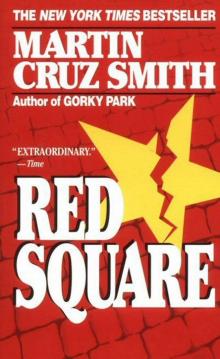 Red Square
Red Square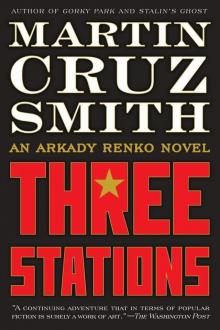 Three Stations
Three Stations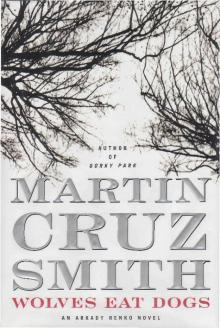 Wolves Eat Dogs
Wolves Eat Dogs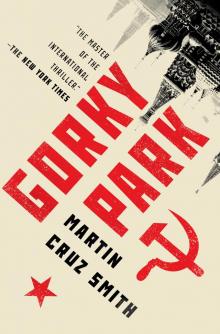 Gorky Park
Gorky Park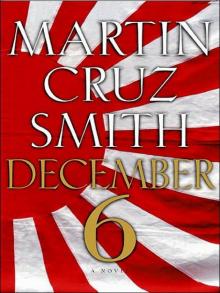 December 6
December 6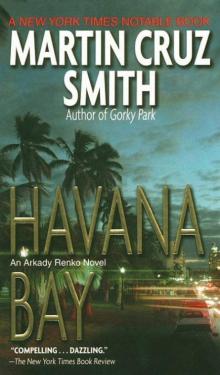 Havana Bay
Havana Bay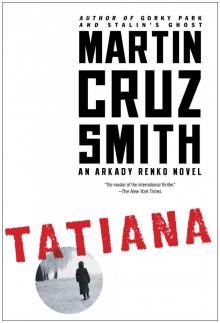 Tatiana
Tatiana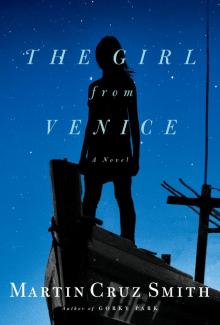 The Girl From Venice
The Girl From Venice Stalin's Ghost
Stalin's Ghost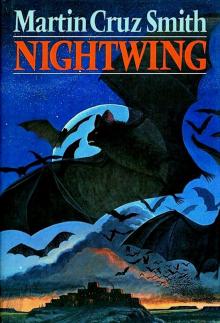 Nightwing
Nightwing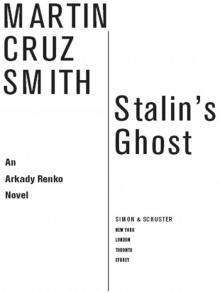 Stalin s Ghost
Stalin s Ghost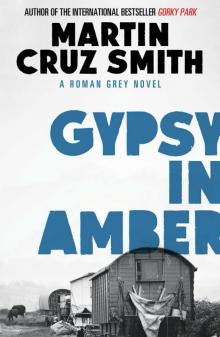 Gypsy in Amber
Gypsy in Amber Rose
Rose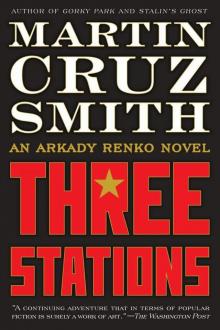 Three Stations: An Arkady Renko Novel
Three Stations: An Arkady Renko Novel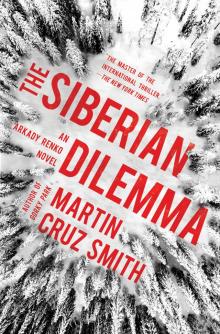 The Siberian Dilemma
The Siberian Dilemma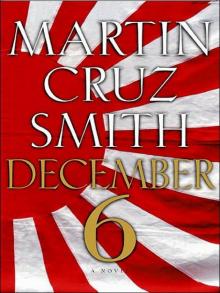 December 6 (V5.0)
December 6 (V5.0)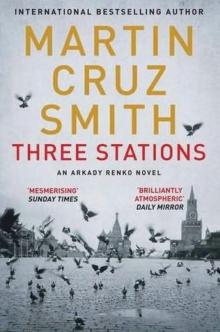 Three Stations ar-7
Three Stations ar-7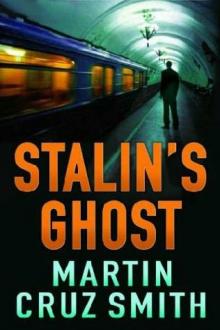 Stalin’s Ghost ar-6
Stalin’s Ghost ar-6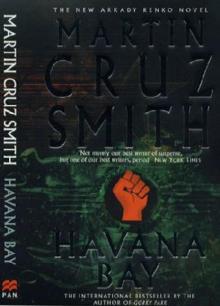 Havana Bay ar-4
Havana Bay ar-4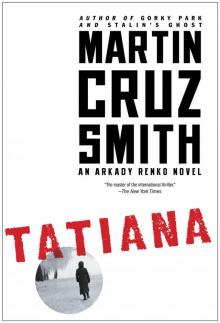 Tatiana ar-8
Tatiana ar-8